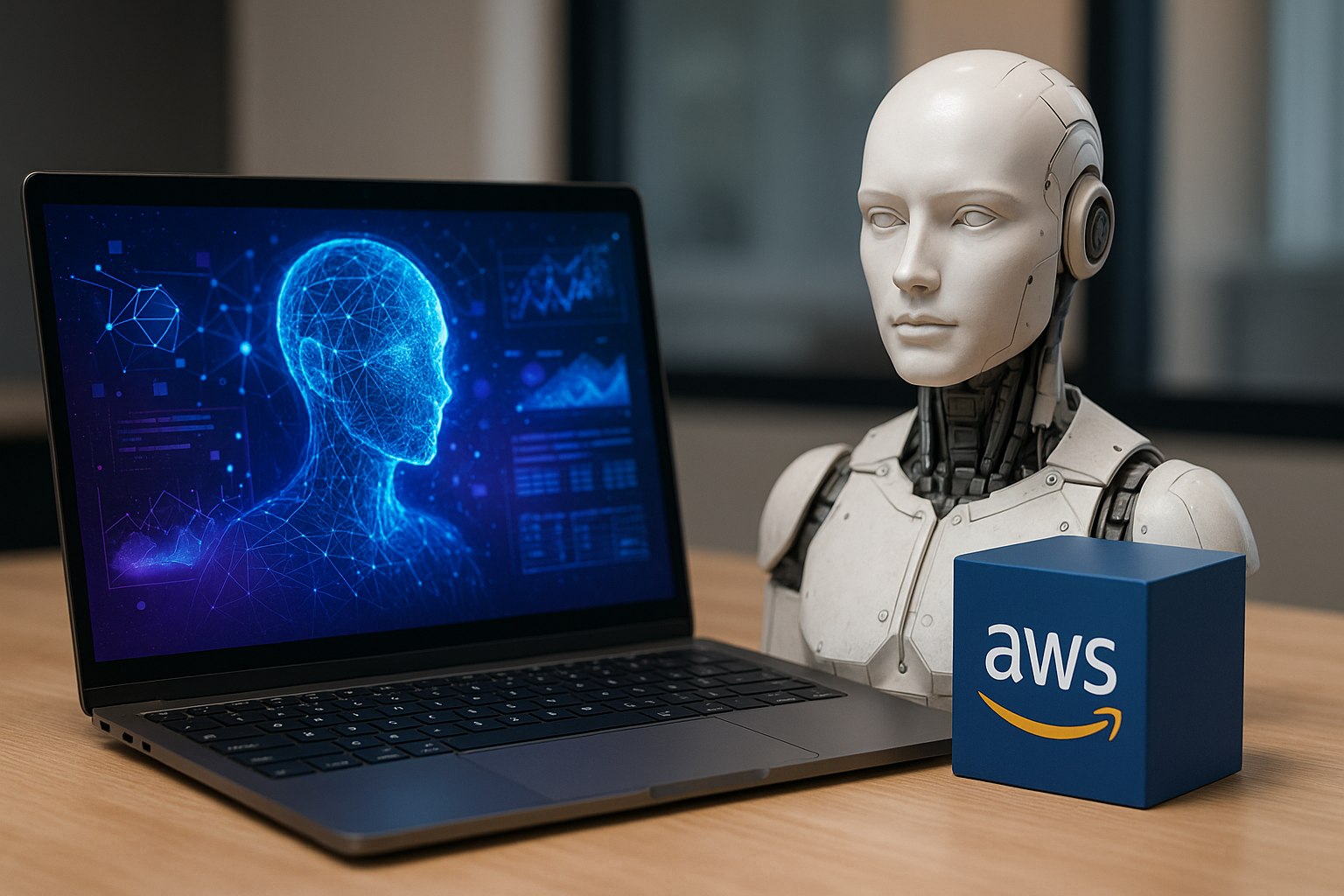Generative AI continues to move from experimental pilots to full-scale deployment, and nowhere is the momentum more visible than in Asia’s digital transformation landscape. The latest signal: Fujitsu and Amazon Web Services (AWS) Japan have jointly launched the “Business Creation Lab,” a new initiative aimed at accelerating enterprise adoption of generative AI and cloud modernization—particularly in Japan’s retail and services sectors. As global companies race to commercialize AI, this collaboration highlights a growing push to turn AI hype into measurable business productivity.
Recent market enthusiasm around AI investments—spanning cloud GPUs, enterprise automation, and AI-driven software—has set high expectations. But as corporate IT budgets tighten, investors are increasingly looking for practical, revenue-generating AI use cases. The Fujitsu-AWS partnership signals that such use cases are nearing commercialization, especially in consumer-facing verticals where customer experience, personalization, and data-driven decision-making are critical.
A Strategic Partnership Built to Scale AI Deployments
According to Fujitsu Global, the new lab will provide enterprises with hands-on access to generative-AI frameworks, cloud-native architectures, and co-development support. By combining AWS’s vast cloud ecosystem with Fujitsu’s industry-specific expertise, the lab aims to reduce deployment friction—one of the biggest challenges slowing enterprise AI adoption.
Industry analysts have repeatedly emphasized that AI scalability, not model training, will be where long-term enterprise value is created. A recent McKinsey report estimated that generative AI could add up to $4.4 trillion annually to global productivity, but only if companies can deploy systems at scale and integrate them across workflows. This lab directly addresses that gap by providing a structured path from experimentation to real-world deployment.
In Japan, where aging demographics and labor shortages have pressured companies to accelerate automation, the timing aligns with national trends. Retail and service-sector companies—ranging from convenience store operators to financial service providers—have rapidly increased investment in AI-enhanced customer experience, predictive analytics, and operational optimization.
Why This Matters for Investors
1. Generative AI Remains a Long-Term Structural Theme
The launch reinforces a broader trend: AI infrastructure, cloud services, and enterprise AI deployment tools continue to attract heavy investment. Companies enabling generative AI—whether via cloud, chips, consulting, or data platforms—are positioned to benefit from multi-year demand.
AWS itself has been scaling AI services aggressively, including investments in Bedrock, Q, and Titan models. Fujitsu, meanwhile, has been restructuring to emphasize digital transformation services globally.
2. Retail and Services Are Becoming the Next AI Battleground
Retail is one of the most data-rich sectors yet historically slow to adopt enterprise AI due to fragmentation and legacy systems. With cloud adoption now accelerating in Japan, investors can expect:
- Expanding budgets for AI customer analytics
- Increased reliance on cloud-native data pipelines
- Accelerated adoption of generative AI assistants in stores, logistics, and support centers
This trend supports growth for cloud hyperscalers, AI service providers, and enterprise software companies.
3. Competitive Dynamics Are Intensifying
While the partnership is promising, the competitive landscape is crowded. Major players—Google Cloud, Microsoft Azure, NTT Data, NEC, and Japanese startups—are expanding AI service offerings. Investors should watch for:
- Execution risk: Labs and innovation hubs often face delays moving from prototype to deployment.
- Regulatory pressure: Japan is strengthening AI transparency and privacy rules, which could slow use cases.
- Margin compression: AI consulting is becoming competitive as global providers enter the market.
Still, Fujitsu and AWS have first-mover advantage in structured co-development for generative AI in Japan.
Future Trends to Watch
AI-Driven Productivity
Japan’s service economy—restaurants, retail chains, tourism, logistics—faces chronic labor shortages. Expect rapid demand for AI automation, especially for:
- Workforce scheduling
- Predictive demand forecasting
- Automated customer service
- AI-enhanced point-of-sale systems
Edge + Cloud Integration
As IoT sensors and smart retail technology expand, AI models need to run closer to the customer. AWS and Fujitsu have already hinted at integrating edge computing to support real-time inference.
AI in Omnichannel Retail
Customer personalization is becoming central to retail competition. Generative AI can automate product recommendations, promotions, and loyalty programs—boosting conversion rates and reducing churn.
Key Investment Insight
Investors may want to track companies enabling enterprise-scale AI deployment—not just model developers. This includes cloud providers, consulting giants, data-architecture specialists, and hardware suppliers supporting AI workloads. Fujitsu and AWS’s initiative is an early signal that AI commercialization cycles are accelerating, especially in Asia’s high-density retail economies.
As always, investors should remain mindful of competitive risk and regulatory factors, but the long-term trajectory remains firmly positioned toward digital transformation and AI-first enterprise strategies.
Stay informed on the latest developments in global tech, markets, and AI-driven disruptions with MoneyNews.Today, your daily source for actionable financial intelligence.





